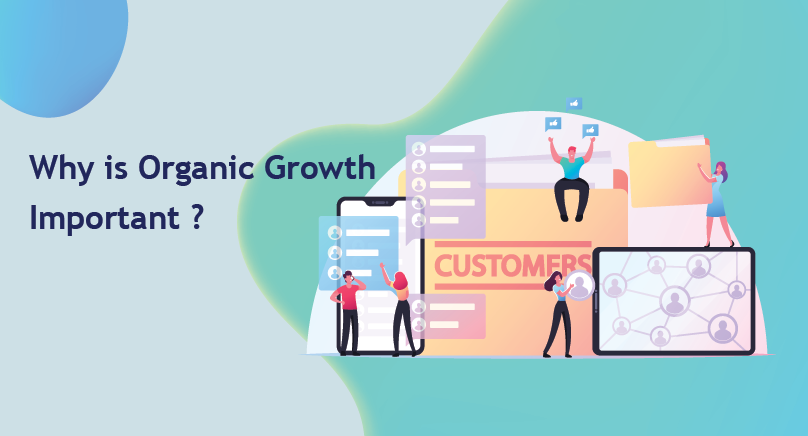
Posted On: April 06, 2022 Posted By: Prerna Saxena
Achieving organic growth is the basis for building a customer base. With very high odds and many large companies on the market, growing a start-up organically can be a daunting task. You can't buy followers unless you're always giving away giveaways. Organic growth is beneficial to the business and demonstrates a long-term and firm commitment to building the company. Large companies with high reach may have the ability to do that, but start-ups say that optimizing resources can enhance and prioritize the company's core capabilities. Organically growing your business takes time and patience, but the benefits are significant. Organic growth tends to slow down, but inorganic growth often acts as a boost and moves businesses forward. Start-ups are currently using it to drive both innovation and market growth, but growth is not synonymous with growth, and the two are not mutually exclusive.
Organic growth is an important success factor as it motivates organizations to acquire the skills and expertise, they need to grow their business from within. This can lead to a variety of benefits, including:
Increased Production: Organic growth requires the use of resources available for business growth, so companies adopting this strategy need to increase production to meet the diverse needs of their customers. Companies must identify target markets where they are willing to pay for their products and services in order to increase production.
Increase Investor Confidence: Long-term organic growth can boost investor confidence in a company's ability to grow and meet shareholder expectations. Organizations that can leverage resources to achieve their business objectives frequently attract investors and have higher stock market value.

Expanding Customer Base: Organic growth requires expanding a company's customer base. Organizations that adopt this strategy will grow their business with existing customers. We also improve our advertising and marketing strategies in order to reach more leads and convert them into paying customers. This will increase your company's brand awareness and your ability to reach and exceed your sales and profit goals. Developing new products and services: Expanding the customer base means developing more agile products and services to better meet the unique needs of a particular market segment. Organic growth goals help companies improve their R & D efforts, understand customer needs, and create products and services that solve market problems.
Review and Improve: There are no hard and fast rules for achieving organic growth rates. Your plans should be reviewed regularly to make sure they are still on track. After careful consideration of the tactics, appropriate modifications should be made as soon as possible.
Make retaining customers a high concern: As you're just getting started, getting new customers is a no-brainer, but when you're scaling up, your focus should be on client retention. It makes sense to keep customers because it lowers acquisition costs while increasing profits. Retention also fosters consumer loyalty and aids in the development of a reliable revenue stream.
A start-up’s ability to grow organically is critical. While there is no one-size-fits-all strategy for achieving a high organic growth rate, the recommendations above may be useful.
Your email address will not be published.
by PayG • January 23, 2023
by PayG • January 23, 2023
by PayG • September 23, 2023
by PayG • March 04, 2023
by PayG • February 04, 2023
by PayG • January 10, 2023
by PayG • Novemeber 03, 2023
by PayG • September 20, 2021
by PayG • AUGUST 14, 2021
by PayG • JUNE 30, 2021